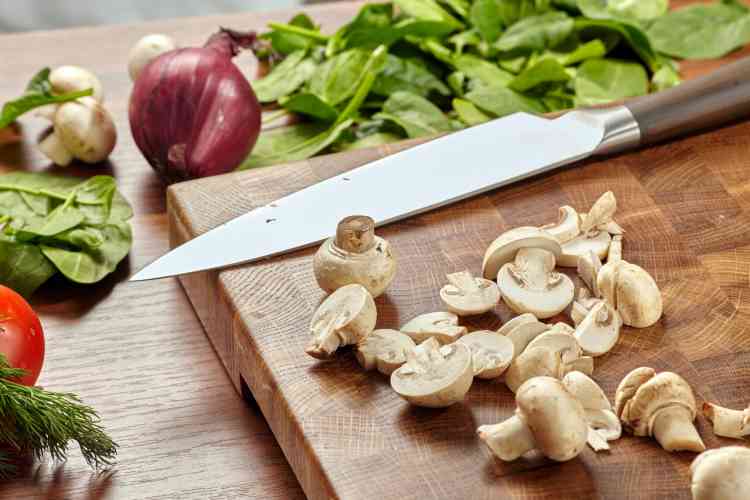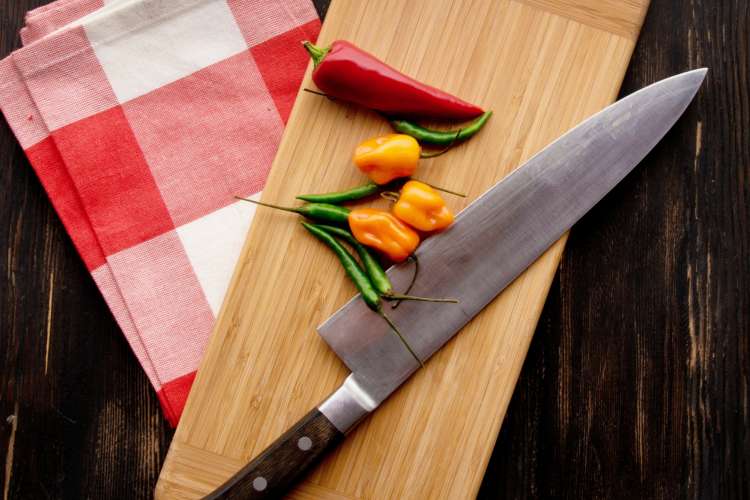For kitchen professionals, the choice of a knife is as crucial as the choice of ingredients. When it comes to slicing brisket, a notoriously tough cut of meat, having the right tool can make all the difference. This is where German knives for slicing brisket come into play. Renowned for their precision, durability, and craftsmanship, German knives are a staple in any serious chef's kitchen.

What Makes German Knives Stand Out?
German knives are celebrated for their superior engineering and craftsmanship. The meticulous attention to detail in their construction ensures that they offer unparalleled precision and durability. The blades are typically made from high-carbon stainless steel, providing a perfect balance between hardness and flexibility. This combination is essential for the repetitive motions needed when slicing through a large brisket.
In addition to their material quality, German knives are known for their ergonomic designs, which reduce hand fatigue during prolonged use. This feature is especially beneficial for chefs who spend long hours in the kitchen. You can learn more about German knife craftsmanship in this detailed history of German knife making.
Choosing the Right German Knife for Brisket
When selecting a German knife for slicing brisket, consider the blade length and shape. A longer blade, typically around 10 to 12 inches, is ideal for making long, even slices. The blade should also have a slight curve, allowing for a rocking motion that aids in smooth, consistent cuts.
Brands like Wsthof and Zwilling J.A. Henckels are top contenders in the realm of German knives. These brands have been trusted by chefs for generations, offering blades that maintain their edge and stand up to rigorous use. For a comprehensive guide on maintaining these knives, check out this maintenance routine.
Maintaining Your German Knife
Proper care and maintenance are crucial for keeping your German knife in top condition. Regular honing and occasional sharpening will ensure that your knife remains sharp and effective. It's also essential to clean your knife after each use, drying it thoroughly to prevent rust. For more cleaning tips, this Wsthof cleaning guide is very helpful.
Storing your knife properly is just as important. Consider using a knife block or magnetic strip to keep the blade safe from damage. For more on knife care, visit this knife care guide.
Expert Tips for Slicing Brisket
Once you've selected and maintained your knife, technique becomes the next focus. Here are some tips from expert chefs:
1. Let the Meat Rest
After cooking, allow your brisket to rest. This step ensures that the juices redistribute, making the meat tender and easier to slice.
2. Slice Against the Grain
Always slice brisket against the grain. This technique shortens the muscle fibers, resulting in a more tender bite.
3. Use Long, Even Strokes
Instead of sawing through the meat, use long, even strokes. This method helps in maintaining the structure of the slices and ensures an even cut.
For a visual guide on using a German knife, check out this unboxing guide that covers the basics of handling and using these knives effectively.
Conclusion
In the world of culinary arts, the right tools are paramount. German knives offer the perfect blend of precision, durability, and comfort, making them indispensable for slicing brisket. By choosing a quality German knife and maintaining it properly, kitchen professionals can ensure that every slice is perfect, showcasing their skill and dedication to their craft.
For more insights into German knives and their applications, explore this extensive guide on sharpening techniques.

FAQ
What is the best German knife for slicing brisket?
Some top choices include Wsthof and Zwilling J.A. Henckels due to their durability and precision. These brands are highly recommended by professionals.
How do I maintain my German knife?
Regular honing, occasional sharpening, and proper cleaning after each use are essential for maintaining your German knife. Refer to the maintenance routine mentioned above for detailed instructions.
Why should I slice brisket against the grain?
Slicing against the grain shortens the muscle fibers, resulting in a more tender and flavorful bite. It is a technique widely used by chefs to enhance the eating experience.


























